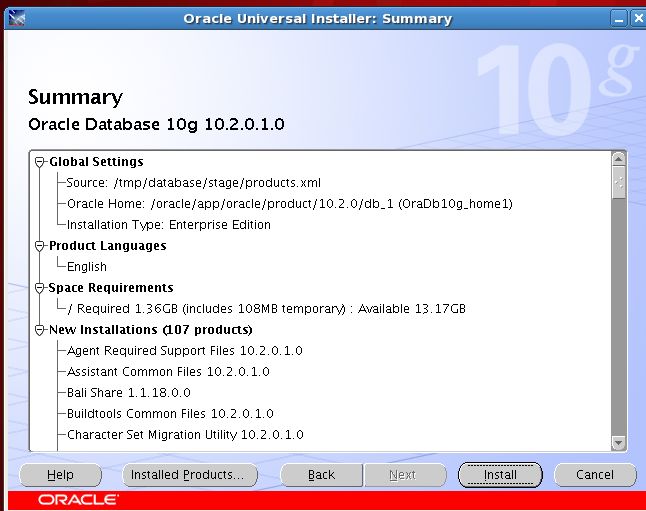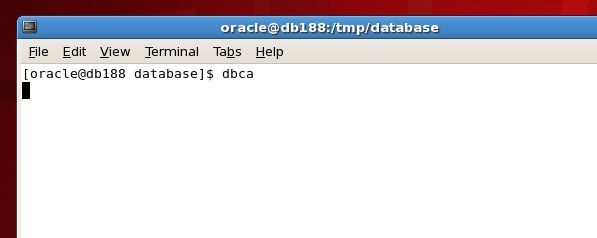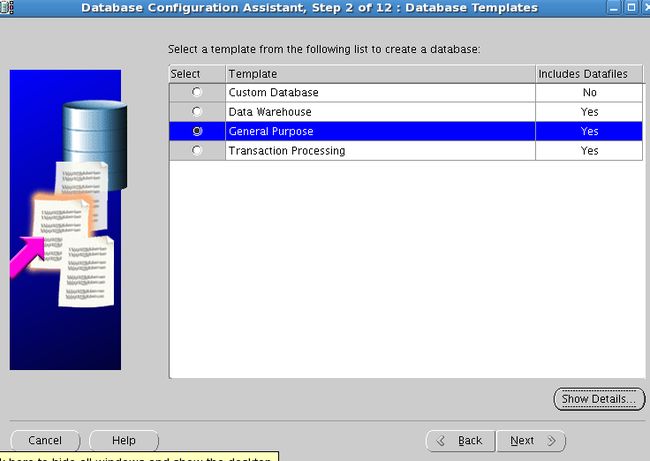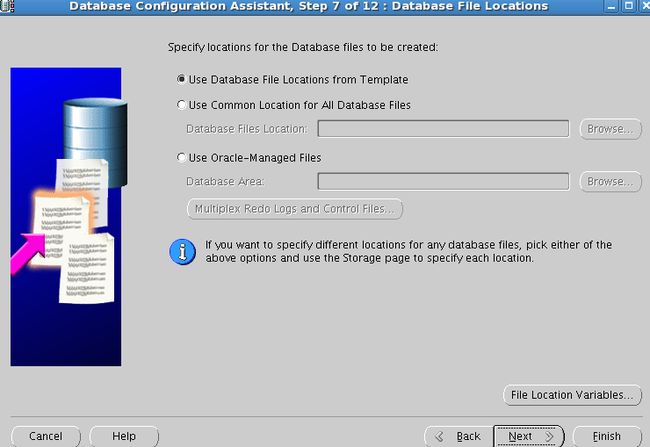10g安装
配置YUM源(国内阿里的还不错,也可以配置挂载的yum源)
yum install -y binutils compat-db control-center gcc* glibc libXp libstdc++ libstdc++-devel make openmotif sysstat control-center
root用户设置内核参数
vi /etc/sysctl.conf
kernel.shmall = 2097152(共享内存,单位是页面数,每个页面数是4K,就是块大小,操作系统ext3的,一个块是4K,设置共享内存8G,官方推荐值,生产中可以自行改大,8GB/4KB=8388608KB /4KB=2097152(页))
kernel.shmmax = 2147483648 (单个共享内存段的最大尺寸,单位字节,单次提取最多2G,不是数据仓库完全够用2G=210241024*1024(byte))
kernel.sem = 250 32000 100 128 (信号量)
fs.file-max = 65536 (文件句柄的最大数量)
net.ipv4.ip_local_port_range = 1024 65000 (端口范围)
net.core.rmem_default = 262144(默认读内存大小)
net.core.rmem_max = 262144(读内存最大值)
net.core.wmem_default = 262144(默认写存大小)
net.core.wmem_max = 262144(写内存最大值)修改Linux版本号
vi /etc/redhat-release (修改版本号,oracle10g只支持到redhat版本4,如果不修改,检测安装环境会报错)
Red Hat Enterprise Linux Server release 3 (Tikanga))-
使内核生效
vi /etc/security/limits.conforacle soft nproc 2047 oracle hard nproc 16384 oracle soft nofile 1024 oracle hard nofile 65536 #core - 限制内核文件的大小
#date - 最大数据大小
#fsize - 最大文件大小
#memlock - 最大锁定内存地址空间
#nofile - 打开文件的最大数目
#rss - 最大持久设置大小
#stack - 最大栈大小
#cpu - 以分钟为单位的最多 CPU 时间
#noproc - 进程的最大数目
#as - 地址空间限制
#maxlogins - 此用户允许登录的最大数目)
```
/sbin/sysctl –p
vi /etc/pam.d/login
在下面添加以下信息
session required /lib/security/pam_limits.so
用户环境变量
groupadd oinstall
groupadd dba
useradd -g oinstall -G dba oracle
passwd oracle
su -l oracle
vi .bash_profile
stty erase ^H //删除键
ORACLE_BASE=/oracle/app
ORACLE_HOME=$ORACLE_BASE/oracle/product/10.2.0/db_1 //家目录
ORACLE_SID=ecom //实例名(与Oracle实例名相同)
PATH=$PATH:$HOME/bin:$ORACLE_HOME/bin
LD_LIBRARY_PATH=$ORACLE_HOME/lib:/usr/lib
NLS_LANG=AMERICAN_AMERICA.ZHS16GBK //字符集
export ORACLE_BASE ORACLE_HOME ORACLE_SID PATH LD_LIBRARY_PATH NLS_LANG
source .bash_profile-
开始安装
mkdir -p /oracle/app
chmod 777 /oracle
chown -R oracle:oinstall /oracle
unzip oracle_database_linux32.zip
在上面图片出来之后 切换到root下执行以下脚本
按ok 退出
-
输入dbca 进入安装
11g脚本安装
- prepare.sh
#!/bin/sh
cat < /etc/sysconfig/network
NETWORKING=yes
HOSTNAME=DB88
EOF
hostname DB88
cat < /etc/hosts
127.0.0.1 localhost localhost.localdomain localhost4 localhost4.localdomain4
::1 localhost localhost.localdomain localhost6 localhost6.localdomain6
192.168.8.88 DB88
EOF
`sed -i 's/ONBOOT=no/ONBOOT=yes/g' /etc/sysconfig/network-scripts/ifcfg-eth0`
service iptables stop
setenforce 0
`sed -i 's/SELINUX=enforcing/SELINUX=disabled/g' /etc/selinux/config`
yum -y install binutils-* \
compat-libstdc++-* \
compat-libcap1-* \
elfutils-libelf-* \
elfutils-libelf-devel-* \
gcc* \
gcc-c++-* \
glibc* \
glibc-common-* \
glibc-devel-* \
glibc-headers-* \
ksh-* \
libaio-* \
libaio-devel-* \
libgcc-* \
libstdc++-* \
libstdc++-devel* \
make-* \
sysstat-* \
unixODBC-* \
unixODBC-devel-* \
numactl-devel-* \
pdksh-* \
kernel-headers* \
wget
groupadd oinstall
groupadd dba
useradd -g oinstall -G dba oracle
echo "oracle" | passwd --stdin oracle
echo "umask 022" >>/home/oracle/.bash_profile
echo "stty erase ^H" >>/home/oracle/.bash_profile
echo "PATH=\$PATH:\$HOME/bin" >>/home/oracle/.bash_profile
echo "TMP=/tmp" >>/home/oracle/.bash_profile
echo "TMPDIR=\$TMP" >>/home/oracle/.bash_profile
echo "ORACLE_BASE=/home/oracle/app/oracle" >>/home/oracle/.bash_profile
echo "ORACLE_HOME=\$ORACLE_BASE/product/11.2.0/db_1" >>/home/oracle/.bash_profile
echo "ORACLE_SID=ecom" >>/home/oracle/.bash_profile
echo "ORACLE_TERM=xterm" >>/home/oracle/.bash_profile
echo "PATH=\$PATH:\$HOME/bin:\$ORACLE_HOME/bin" >>/home/oracle/.bash_profile
echo "LD_LIBRARY_PATH=\$ORACLE_HOME/lib:/lib:/usr/lib" >>/home/oracle/.bash_profile
echo "CLASSPATH=\$ORACLE_HOME/JRE:\$ORACLE_HOME/jlib:\$ORACLE_HOME/rdbms/jlib" >>/home/oracle/.bash_profile
echo 'NLS_DATE_FORMAT="yyyy-mm-dd HH24:MI:SS"'>>/home/oracle/.bash_profile
echo "NLS_LANG=AMERICAN_AMERICA.ZHS16GBK" >>/home/oracle/.bash_profile
echo "export EDITOR=vi" >>/home/oracle/.bash_profile
echo "export TMP TMPDIR ORACLE_TERM CLASSPATH NLS_DATE_FORMAT ORACLE_BASE ORACLE_HOME ORACLE_SID PATH LD_LIBRARY_PATH NLS_LANG EDITOR" >>/home/oracle/.bash_profile
mkdir -p /home/oracle/app/oracle
chmod -R 777 /home/oracle/app/oracle
chown -R oracle:oinstall /home/oracle
cd /tmp
unzip linux.x64_11gR2_database_1of2.zip
unzip linux.x64_11gR2_database_2of2.zip
rm -rf linux.x64_11gR2_database_1of2.zip linux.x64_11gR2_database_2of2.zip
chmod -R 777 /tmp/database
chown -R oracle.oinstall /tmp/database
- prelimits.sh
#!/bin/bash
#Purpose:Change the /etc/security/limits.conf.
#Usage:Log on as the superuser('root'),and then execute the command:#./prelimits.sh
#Author:TJ
echo "Now modify the /etc/security/limits.conf,but backup it named /etc/security/limits.conf.bak before"
cp /etc/security/limits.conf /etc/security/limits.conf.bak
echo "oracle soft nproc 2047" >>/etc/security/limits.conf
echo "oracle hard nproc 16384" >>/etc/security/limits.conf
echo "oracle soft nofile 1024" >>/etc/security/limits.conf
echo "oracle hard nofile 65536" >>/etc/security/limits.conf
echo "grid soft nproc 2047" >>/etc/security/limits.conf
echo "grid hard nproc 16384" >>/etc/security/limits.conf
echo "grid soft nofile 1024" >>/etc/security/limits.conf
echo "grid hard nofile 65536" >>/etc/security/limits.conf
echo "Modifing the /etc/security/limits.conf has been succeed."
- prelogin.sh
#!/bin/bash
#Purpose:Modify the /etc/pam.d/login.
#Usage:Log on as the superuser('root'),and then execute the command:#./prelimits.sh
#Author:TJ
echo "Now modify the /etc/pam.d/login,but with a backup named /etc/pam.d/login.bak"
cp /etc/pam.d/login /etc/pam.d/login.bak
echo "session required /lib/security/pam_limits.so" >>/etc/pam.d/login
echo "session required pam_limits.so" >>/etc/pam.d/login
echo "Modifing the /etc/pam.d/login has been succeed."
- preprofile.sh
#!/bin/bash
#Purpose:Modify the /etc/profile.
#Usage:Log on as the superuser('root'),and then execute the command:#./preprofile.sh
#Author:TJ
echo "Now modify the /etc/profile,but with a backup named /etc/profile.bak"
cp /etc/profile /etc/profile.bak
echo 'if [ $USER = "oracle" ]||[ $USER = "grid" ]; then' >> /etc/profile
echo 'if [ $SHELL = "/bin/ksh" ]; then' >> /etc/profile
echo 'ulimit -p 16384' >> /etc/profile
echo 'ulimit -n 65536' >> /etc/profile
echo 'else' >> /etc/profile
echo 'ulimit -u 16384 -n 65536' >> /etc/profile
echo 'fi' >> /etc/profile
echo 'fi' >> /etc/profile
echo "Modifing the /etc/profile has been succeed."
- presysctl.sh
#!/bin/bash
#Purpose:Modify the /etc/sysctl.conf.
#Usage:Log on as the superuser('root'),and then execute the command:#./6presysctl.sh
#Author:TJ
echo "Now modify the /etc/sysctl.conf,but with a backup named /etc/sysctl.bak"
cp /etc/sysctl.conf /etc/sysctl.conf.bak
echo "fs.aio-max-nr = 1048576" >> /etc/sysctl.conf
echo "fs.file-max = 6815744" >> /etc/sysctl.conf
echo "kernel.shmall = 2097152" >> /etc/sysctl.conf
echo "kernel.shmmax = 1054472192" >> /etc/sysctl.conf
echo "kernel.shmmni = 4096" >> /etc/sysctl.conf
echo "kernel.sem = 250 32000 100 128" >> /etc/sysctl.conf
echo "net.ipv4.ip_local_port_range = 9000 65500" >> /etc/sysctl.conf
echo "net.core.rmem_default = 262144" >> /etc/sysctl.conf
echo "net.core.rmem_max = 4194304" >> /etc/sysctl.conf
echo "net.core.wmem_default = 262144" >> /etc/sysctl.conf
echo "net.core.wmem_max = 1048586" >> /etc/sysctl.conf
echo "net.ipv4.tcp_wmem = 262144 262144 262144" >> /etc/sysctl.conf
echo "net.ipv4.tcp_rmem = 4194304 4194304 4194304" >> /etc/sysctl.conf
echo "Modifing the /etc/sysctl.conf has been succeed."
echo "Now make the changes take effect....."
/sbin/sysctl -p































